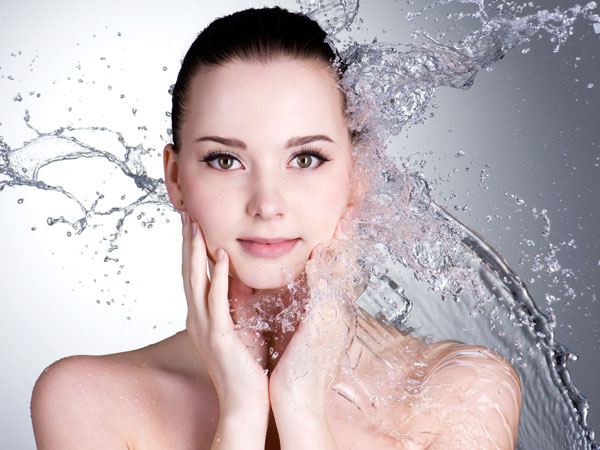
7 Key Causes Of Skin Dehydration
Dehydration is a bad skin condition that causes wrinkles, fast aging, breakouts, over oil production, etc. How can you prevent dehydration? The answer lies in the cause, if you know how it occur you will know how to correct it. Below are 7 causes of skin dehydration.
Cold, dry air
Winter is notorious for causing dryness, but dehydrated skin can happen in any season. That’s because dehydration is not the same as dryness. Your skin needs water to stay moisturized and healthy, and it takes on water through sweat and sebum production as well as simple hydration. However, dehydrated skin can happen if you are exposed to harsh elements such as cold, dry air or windy weather—or even if you’re just not drinking enough water. The good news? Dehydration is reversible with some extra attention and care for your skin (and yourself).
Hot water
Hot water: We all love a steaming hot shower, but hot water is one of the most common causes of dry skin because it strips your skin of its natural oils. If you want to prevent this, consider setting your water heater’s temperature lower (around 120 degrees Fahrenheit). You might also consider limiting the amount of time you spend in the shower.
Ingredients in soap and shampoo: Some ingredients found in soaps and shampoos can be drying to your skin. Sulfates are a common ingredient that’s often blamed for this problem. The solution here is simple: switch to sulfate-free soaps and shampoos.
Medications
Medications are another common cause of dry skin. This can include over-the-counter and prescription medications, such as antihistamines, diuretics, acne medications, and blood pressure medicines. If you think medications may be causing your dry skin symptoms, talk to your doctor about alternative options. It’s important not to stop taking a medication without consulting with your doctor first. You should also look for a moisturizer that contains hyaluronic acid or glycerin, which is less likely to make you break out if you’re taking acne medication.
Over-cleansing
Cleansing is an important part of your skin care routine, but over-cleansing can strip away the skin’s natural oils and leave it dehydrated. It’s important to use lukewarm water and a gentle cleanser when washing your face. You should also avoid using facial soaps that have harsh ingredients like alcohol, menthol, acid or astringent. As with all skin types, it’s important to moisturize at least twice a day to replenish hydration and prevent dryness.
Skipping moisturizer
If you’re reading this, you’ve likely just experienced the negative effect of washing without moisturizing. You’re probably feeling dry, itchy, or even flaky skin. Maybe your cheeks are a little red. Maybe you have a rash forming somewhere on your body that wasn’t there yesterday, and now it’s spreading!
I’m here to tell you that the solution is simple: hydrate. The skin has a natural barrier to moisture loss, but sometimes we lose more water than our bodies can restore on their own—like when we spend time in the sun or in windy conditions; when we get too hot or work out; or when we’re dehydrated from drinking too little water.

The right skincare product like 4D Hyaluronic Acid Gel Moisturizer Face Cream will restore your skin’s moisture balance and take care of whatever uncomfortable symptoms you might be experiencing—redness and itchiness included. Use gentle circular motions to apply this all-important lotion and voila: back to normal!
Not drinking enough water
The first cause is not drinking enough water. Water is by far the best way to hydrate your skin and it’s also important for your overall health. Dehydrated skin can lead to more serious conditions like dry, cracked lips, eczema and even acne.
Knowing the causes of dehydrated skin is the first step to correcting it.
The distinction between dehydrated and dry skin is an important one. Not only do these two terms refer to different skin issues, they also involve different methods of treatment. Dry skin refers to a skin type not caused by external factors like environment or diet. Dry skin types tend to have lower levels of sebum (or oil) in the epidermis, and can often feel tight or even itchy due to a lack of moisture in the outermost layer of the skin.
Dehydration on the other hand, refers to a condition that can affect any type of skin — including oily and combination. Dehydrated skin occurs when there aren’t enough natural moisturizing factors (NMF) in the epidermis, which are made up of amino acids, urea and various minerals that maintain hydration in our cells.





